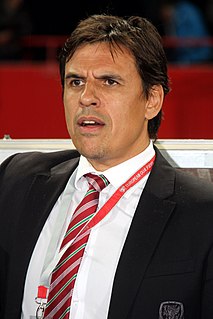A Quote by Phil Crosby
Many managers feel, somewhat cynically, that people are being paid to do their jobs and that's that. This attitude reflects an insensitivity to people that is a trademark of many hockey-style managers.
Related Quotes
I think there are probably too many hedge fund managers in the world, as well as active fund managers. The hedge fund industry is very efficient. We see a lot of hedge funds open and a lot close. It's very binary. You either succeed or fail in the hedge fund world. If you succeed, the amount the managers make it beyond most people's wildest dreams of wealth.


































